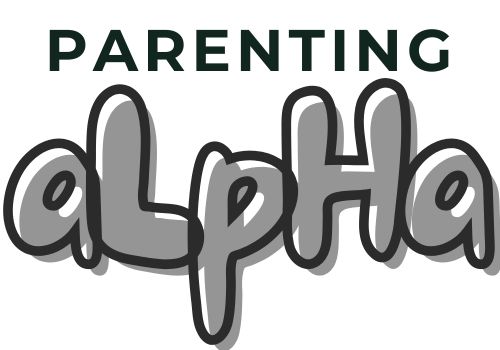Of the many parenting styles out there, authoritative parenting has garnered considerable interest, majorly because it is considered effective and healthy.
Compared to the others, authoritative parenting has been found to promote positive outcomes for children. It is balanced and nurtures approaches where parents set clear expectations and boundaries for children while also being responsive and supportive.
They encourage their children to be independent, responsible, and make decisions on their own while providing guidance and support.
This parenting style is often characterized by open communication, mutual respect, and a healthy balance between demandingness and warmth. Children of authoritative parents tend to have better social and emotional development, higher academic achievement, and fewer behavioral problems.
Advantages of Authoritative Parenting

Compared to other parenting styles, namely authoritarian, permissive, neglectful, and helicopter parenting. authoritative parenting has been shown to have several benefits for children’s development:
1. Positive & Healthy Self-Esteem:
Children who grow up in authoritative homes have higher self-esteem and confidence levels. As the parents in this style provide a nurturing and supportive environment, children feel valued and loved. This, in turn, helps them to develop a positive self-image and self-worth.
2. Better Academic Performance:
This type of parenting encourages children to take responsibility for their actions and decisions. This fosters a sense of independence and helps children to develop problem-solving skills. This, in turn, leads to better academic performance as children become self-motivated and take responsibility for their learning.
3. Strong Emotional Development:
Authoritative parents are responsive to their child’s emotional needs and help them to regulate their emotions. This helps children to develop a strong emotional foundation and helps them to deal with stress and anxiety in a better way.
4. Improved Social & Communication Skills:
Authoritative parents emphasize open communication, which can help children express themselves effectively. They also learn to respect others’ opinions and ideas, which leads to improved social skills and better relationships.
5. Better Mental Health:
Children who grow up in authoritative homes have better mental health outcomes. As the parents provide a supportive and nurturing environment, children feel secure and loved, which reduces the risk of developing mental health problems.
6. Independence and Responsibility:
Authoritative parenting allows children to make some decisions within a framework of guidelines set by their parents. This balance of autonomy and guidance fosters independence and a sense of responsibility. Children learn to think critically and make informed choices.
7. Fewer Behavioral Problems:
Due to the consistent boundaries and expectations set by authoritative parents, children are more likely to understand and respect rules. This, in turn, leads to fewer behavioral issues and conflicts. Children feel secure knowing their parents’ expectations, reducing the likelihood of rebellious behavior.
8. Coping Skills:
Authoritative parents provide guidance and support during challenging situations. Children learn effective problem-solving and coping strategies, which are valuable skills for navigating life’s ups and downs.
Disadvantages of Authoritative Parenting

1. Time-Consuming:
Authoritative parenting requires a lot of time and effort from parents. It involves constant communication, guidance, and support, which can be challenging for parents who have busy schedules.
2. High Expectations:
With this parenting style, there is emphasis on setting clear expectations and rules, children may feel overwhelmed or pressured to meet their parents’ expectations. This can lead to stress and anxiety in some children.
3. Lack of Flexibility:
This mode of parenting is often rigid in its approach, which can make it difficult for children to express themselves or make decisions that may not align with their parents’ expectations.
4. Overprotection:
As parents are responsive to their child’s emotional needs, they may sometimes become overprotective, which can hinder a child’s independence and growth.
Authoritative Parenting and the Use of Technology

When it comes to the use of technology, authoritative parenting emphasizes setting reasonable limits and boundaries while also encouraging independence and responsibility.
Authoritative parents recognize the importance of technology in modern life and seek to guide their children in using it responsibly. They may set rules around technology use, such as limiting screen time or requiring that devices be turned off during mealtimes and before bed.
However, they also encourage their children to explore and learn through technology, providing opportunities for them to use it in creative and educational ways.
Authoritative parents also prioritize communication and open dialogue around technology use. They encourage their children to share their experiences and concerns, and may use these conversations to offer guidance and support.
Overall, these parents encourage a balanced approach to technology use, recognizing both its benefits and potential pitfalls. By setting reasonable limits and fostering communication and responsibility, they help their children develop healthy habits around technology use.
Q and A:

1. How does authoritative parenting differ from other parenting styles?
Authoritative parenting differs from authoritarian parenting, where strict rules are enforced without much room for flexibility, and permissive parenting, which involves few rules and high levels of warmth. Neglectful parenting is characterized by lack of involvement, and helicopter parenting involves excessive control. Authoritative parenting strikes a balance between setting rules and fostering a supportive environment.
2. Is authoritative parenting the most effective style?
Research suggests that authoritative parenting tends to lead to positive outcomes for children’s development. However, the effectiveness of a parenting style can also depend on factors like the child’s temperament, cultural influences, and individual family dynamics.
3. Can authoritative parents be strict when necessary?
Yes, authoritative parents do set clear rules and expectations, and they can be firm when needed. However, they also take the time to explain the reasons behind the rules and listen to their children’s perspectives, promoting a sense of understanding rather than just strict obedience.
4. Is authoritative parenting suitable for all cultures?
While authoritative parenting principles can be adapted to various cultural contexts, some cultures may value different aspects of parenting. It’s important to consider cultural norms and values when applying parenting styles to ensure that the approach remains effective and respectful of cultural differences.
5. How can authoritative parents handle conflicts with their children?
Authoritative parents typically use open communication and problem-solving approaches when conflicts arise. They listen to their children’s concerns, discuss potential solutions, and encourage compromise. This helps children learn conflict resolution skills and understand the importance of respectful communication.
6. Can authoritative parenting be too permissive?
While authoritative parenting is characterized by warmth and responsiveness, it still involves setting clear boundaries and expectations. If a parent becomes excessively permissive and avoids enforcing rules, the parenting style might shift more toward a permissive approach, which could lead to challenges in managing behavior and discipline.
7. Can authoritative parents be flexible with rules?
Yes, authoritative parents can be flexible with rules when appropriate. They take into account their children’s individual needs and circumstances, allowing for discussions and adjustments to rules when necessary. This flexibility helps children learn to navigate situations and decisions responsibly.
8. How does authoritative parenting affect children’s self-esteem?
Authoritative parenting, with its emphasis on warmth, support, and clear communication, contributes positively to children’s self-esteem. Children feel valued and loved, which fosters a strong sense of self-worth and confidence in their abilities.
In conclusion, authoritative parenting stands out as a highly effective and healthy approach to raising children. Its emphasis on warmth, communication, and clear boundaries fosters positive outcomes in children’s social, emotional, academic, and behavioral development. This style equips children with the skills and confidence they need to thrive both in childhood and throughout their lives.
However, it also has some disadvantages, such as being time-consuming, high expectations, lack of flexibility, and overprotection.





Leave a Reply